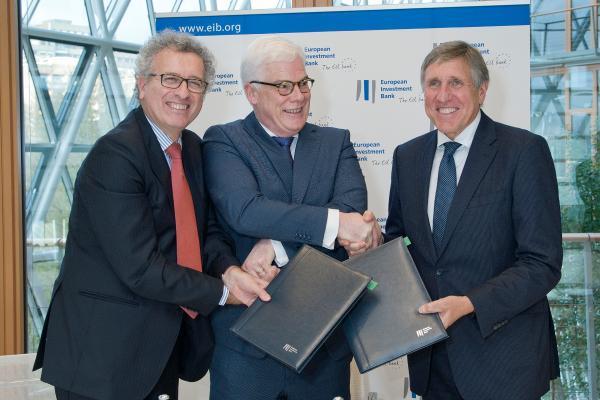
The European Investment Bank (EIB) and the Luxembourg Government have signed a EUR 300 million loan agreement to finance education facilities in the Grand Duchy.
Under its education facilities construction and refurbishment programme, the government has launched around EUR 679 million worth of projects. In line with EU objectives, the EIB is helping Luxembourg to bring these projects to fruition. The EUR 300 million finance contract was signed by Vice-President Pim van Ballekom for the EIB and by Finance Minister Pierre Gramegna and Sustainable Development and Infrastructure Minister François Bausch for the Luxembourg Government.
EIB Vice-President Pim van Ballekom said at the signing ceremony: “We are proud that this long-term operation has got off the ground. This first direct loan to the State Treasury puts the seal on our renewed partnership.” He added: “The education sector is vital to creating a knowledge economy, which is one of the top priorities of the EIB as the EU’s bank. High quality teaching structures and state-of-the-art sustainable facilities are key to meeting the challenge of training and ultimately providing jobs for young people.”
This cofinancing partnership is the first of its kind. It will reinforce the already excellent relations between the Luxembourg authorities and the EIB, whose headquarters are in Luxembourg. It also underlines the government’s efforts to diversify its sources of finance. This initiative will benefit from the EIB’s unique technical expertise and enable the different teams to work closely together.
This joint financial operation by the EIB and Luxembourg will cover the costs of building, equipping and refurbishing six new and ten existing schools and the new Luxembourg National Library to be located at Bricherhaff on the Kirchberg Plateau. The construction works for the different schemes are scheduled for completion in 2020.
The schemes to be financed include a new agricultural college in Gilsdorf, a new upper secondary school in Clervaux and the Luxembourg Atheneum. The costs of constructing or refurbishing these three buildings alone will account for half of the total amount of the loan.
As well as increasing schooling capacity, this programme will make it possible to achieve very high energy performance standards. This will serve to both cut energy bills and reduce carbon emissions – essential to combatting climate change and meeting national and European goals under the energy efficiency directive.

Photographer: EIB ©To be defined
Download original

Photographer: Kapture Agency ©To be defined
Download original

Photographer: Kapture Agency ©To be defined
Download original

©To be defined
Download original

©To be defined
Download original

©To be defined
Download original

©To be defined
Download original